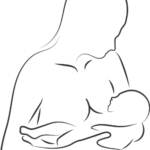Image credit to Pexels
What To Do If Your Baby Falls Down
What To Do If Your Baby Falls Down If your baby falls, you can’t help but feel like the world’s worst parent. Particularly when they hit their head. Yet most babies will have a minor accidental fall at some point or another. Though you may feel like you’re alone, these situations are much more common than you may realize.
Fortunately, in most cases, babies are okay. The saying “babies are made of rubber” applies often.
Why Babies Fall Down
There are many reasons a baby might fall, and those reasons will vary depending on age and circumstance.
The most common causes of newborn baby falls are:
A caregiver falls asleep while feeding or rocking their baby, and the baby drops out of their arms
A caregiver carrying a baby who trips falls, and drops the baby
Baby falls from furniture
Baby falls from baby products
For older babies, the most common reasons for a fall are:
Falling down stairs when they are just becoming mobile and investigating their surroundings.
They can fall onto or against hard or pointy surfaces while learning to roll, walk, and crawl. Similarly, they may also have a fall from heights if they are able to climb.
Warning signs to look for if your baby falls
Falls are the leading cause of non-fatal injuries in children under 19 years old. It, therefore, goes without saying that you will need to take every fall your baby takes seriously and judge the situation with a lot of caution.
In most cases, if your baby falls, but cries right away, isn’t bleeding, isn’t showing obvious signs of injury, acts normally and is not vomiting, and is consoled once you pick them up—you are not dealing with an emergency situation. You can take a few breaths before you contact your healthcare provider. In all probability, your baby is fine.
There are some circumstances where falls require immediate attention; each of the following scenarios means calling 911 immediately. Your baby loses consciousness; your baby begins vomiting immediately. Discharge or blood is coming from your baby’s nose or ears. The soft spot (fontanelle) on their skull begins to bulge. There are signs of a severe skull fracture. Your baby is having a seizure.
You think your baby may have a broken bone Their legs, arms, neck, or spine look twisted or deformed Your baby is acting strangely, such as: Sleeping much more than normal Not feeding as well as normal.
In case you observe any of these signs—most especially if your baby manifests neck, spine, or scalp injury—moving them will only further risk worsening these injuries, so it is best not to pick up your baby in an attempt to console them. You should call 911 right away in these instances.
What To Do When Your Baby Falls Down
If your baby is not in a life-threatening medical condition, you most probably will have many questions about the time following a fall what should be done for your baby, and when to call or see a healthcare provider.
The very first thing you do, of course, is pick up your baby and comfort them. Usually, if they get easily consoled, that would be a very good sign.
Here’s what else you might do in the immediate aftermath of a non-emergency fall:
Call your healthcare provider. He or she may or may not ask you to bring your baby in, but you should check in soon after a fall for advice
Clean any cuts or scrapes with soap and water
Apply an antibacterial cream and bandages to open wounds or cuts
If there are reddening spots or bumps, apply an ice pack or cold compress to the affected area, for about 20 minutes. Observe your baby’s behavior closely throughout the day for concussion or other head-injury symptoms. These can include: dizziness headache extreme crankiness seeming less alert and less coordinated looking sweaty, pale, or beginning to vomit
If your baby is sleepy, your health care provider may recommend that you allow them to sleep but waken them for checks every two hours to make sure they are doing well
When To See a Health Care Provider
In that case, all falls by the baby should be reported to a healthcare professional whether minor or major. Why? Well, this is because the skulls and bones of babies are more fragile as compared to the older children and they can get hurt more easily by falling.
However, if you have assessed that your baby’s injuries are minor and he doesn’t need any kind of emergency care, then you can afford to wait a little while before making a call. At least you should place a call within an hour or so after his fall just to be on the safe side.
The health care provider or nurse can help you decide whether to bring your baby in. If you and your healthcare provider believe that your baby should be examined, here’s what may happen at the office. Your health care provider will:
- Describe to them how your baby fell, and how they acted immediately after the fall.
- Examine your baby for signs of minor or more serious injury.
- Describe what to watch for in your baby during the next 24 hours for signs of concussion or other brain injuries.
- Describe how often to check on your baby that night while he is sleeping.
- Tell you if you need to return for a follow-up visit and how to get help in case of an emergency.
- Review your home safety plan to help avoid future falls.
- If You Are Still Concerned.
It’s common for parents to still feel concerned or worried, even after a reassuring phone call or visit to the doctor.
Also Read : 7 Unsafe Sleep Products To Keep Out of the Crib
How Long To Observe Your Baby
In general, after a 24-hour period of observation and extra vigilance, if your baby seems like themselves, it’s unlikely that anything worse will happen. Usually, signs of concussion or other serious brain injuries will develop over the course of the first 24 hours.
But if it seems “off” to you, again even when there’s no apparent concussion or other types of brain injury, don’t hesitate to call your healthcare provider again or to go to urgent care. Sometimes parental instincts are so high, and you should always follow them.
How to Help Prevent Future Falls
Many falls are preventable. Think of your baby’s first fall as a learning experience and a chance to take action to make another fall less likely to happen.










